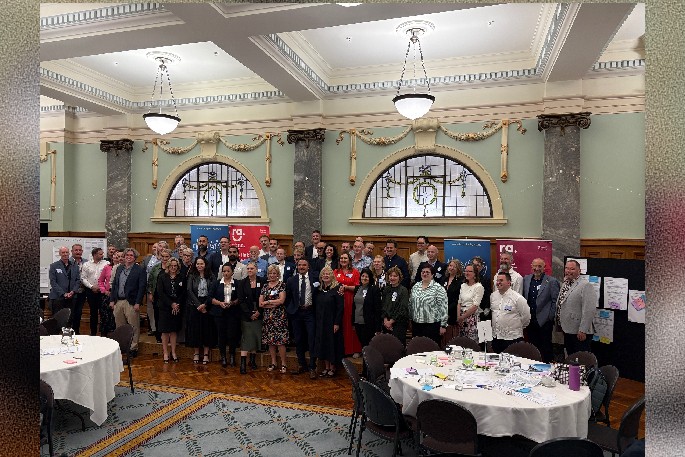This Content Is Only For Subscribers
Yesterday, December 12, Wellington hosted the inaugural Hospitality Summit, bringing together over 50 industry stakeholders and government representatives to address pressing issues in New Zealand’s hospitality sector.
Held at Parliament Buildings, the Summit marked a key moment for collaboration between the industry and policymakers.
Minister Matt Doocey (Minister for Tourism and Hospitality), Cushla Tangaere-Manuel (Labour spokesperson for Tourism and Hospitality), Celia Wade-Brown QSO (Green spokesperson for Tourism and Hospitality), and Todd Stephenson (ACT spokesperson for Tourism and Hospitality) were part of the speakers and The Summit’s goal aimed to encourage discussion, drive innovation, and shape future government policies to support the industry’s growth and resilience.
Key industry bodies, Hospitality New Zealand and the Restaurant Association of New Zealand, led the charge, presenting draft recommendations shaped by extensive input from the wider industry and other stakeholders. These recommendations addressed six critical areas:
1. Worker shortages and skills gaps Immigration policies have hindered efforts to attract and retain skilled workers. Suggestions include revising visa terms, lowering wage thresholds for accredited employer visas, and expanding initiatives like the HospoCred programme. Industry-led training programs such as HospoStart and Te Tupu Tahi are also key to bridging skills gaps.
2. Education and training The sector aims to become a career of choice by 2028. Strategies include addressing perception issues, promoting clear career pathways, standardising e-learning platforms, and launching campaigns to attract young talent. Fostering a culture of learning and growth remains central to these efforts.
3. Regulatory burdens Hospitality business owners face significant challenges navigating complex compliance frameworks. Simplifying licensing, employment regulations, and other operational requirements would ease these pressures and allow businesses to focus on growth.
4. Sustainability The sector’s transition to environmentally responsible practices comes with high costs. Programmes like the Restaurant Association’s Kai Keepers initiative and targeted subsidies for waste reduction and recycling are seen as pivotal solutions.
5. Data investment Unlike the accommodation sector, restaurants lack comprehensive data for effective planning. Access to benchmarking data on costs such as food, labour, and overheads, along with tools for interpreting spending trends, is essential for informed decision-making.
6. Modernisation Investments in technology and connectivity are critical for modernising the sector and ensuring its resilience in a digital age.
Marisa Bidois, chief executive of the Restaurant Association of New Zealand, emphasised the importance of data-driven strategies for the industry. She shared, “The Restaurant Association of New Zealand, in partnership with Hospitality NZ, has received funding from the Tourism Data Partnership Fund to address critical gaps in tourism and hospitality data. This funding will be used to develop hospitality and restaurant spending insights, providing much-needed clarity about the value and market trends within the sector.”
Marisa outlined the scope of the research as:
A micro-level breakdown of domestic versus international spending.
The size of the hospitality and restaurant tourism market, both internationally and domestically.
Customer demographics, loyalty, and frequency of visits.
Insights into tourism spend relative to local spend, including domestic tourism.
“These insights will empower industry operators and stakeholders with sector-specific data, enabling them to gauge performance regionally and nationally. Businesses can tailor their offerings to align more effectively with customer preferences and market demands, improving their competitiveness and ability to make informed decisions.” says Marisa.
The research also aims to identify trends in cultural tourism, promoting New Zealand’s unique heritage and culinary brand. By understanding spending patterns and preferences, the industry can better attract visitors, enhance their experiences, and contribute to economic stability in tourism-dependent regions.
Covering the period September 2023 to August 2024, the study will provide a comprehensive overview of the sector, helping shape strategies to support innovation and growth.



